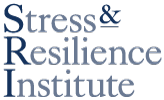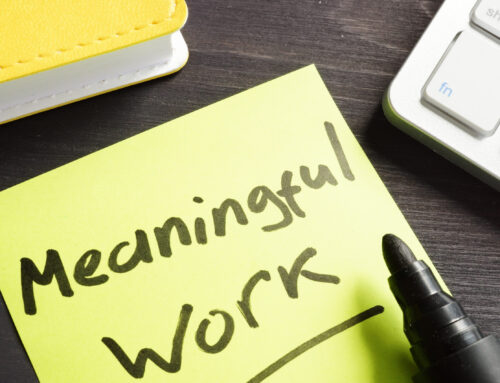Manage stress and build a stronger you in 2013 If you could build a strong 2013, what would you include? A colleague of mine just told me, “2012 was breathtaking – I’d be happy if this year’s pace was just a bit more relaxed.” Whether you want to develop more meaningful relationships, bounce back better from stress and adversity, or pursue a meaningful challenge, the following seven strategies will help you build a stronger you this year: 1) Embrace the three C’s. Not long after I started my business, I saw a friend of mine who I hadn’t seen for awhile. After we hugged hello, she remarked, “Whatever you are doing is working – you are positively glowing.” The happiness that she saw bubbling up in me had nothing to do with anything extrinsic (money, cars, new clothes), but the type of motivation that makes you happy in your core. According to psychologists Edward Deci and Richard Ryan, in order for you to get more of that glow-in-the-dark happiness, you should pursue goals that foster relatedness (connection), experience mastery (competence), and autonomy or freedom (choice). 2) Manage stress based on your stress type. People experience stress in very different ways so what works for you in terms of effective stress management might not work for someone else. Doctors Stephanie McClellan and Beth Hamilton have identified the following common stress types: Zero to Sixty: You are generally calm, but when stress hits, you have a big response. You are extremely sensitive to stress. Life Observer: You feel like you’re living in a bubble watching life pass you by. Constant Overdrive: Your engine is always revved. People with this stress type have a hard time sitting still, often tap their feet or hands, and frequently clench or grind their teeth. Dash and Crash: Stress keeps you focused and running so you can achieve, but once the stress is reduced or eliminated, you crash. Dash and crashers are prone to burnout. Once you become aware of your stress type or types, you can take specific, tailored steps to better manage the impact. 3) Get gritty. Grit is perseverance and sustained interest in long-term goal accomplishment. Studies have shown that grit, more so than IQ or standardized test scores, was a better predictor of success for incoming cadets at West Point and which students would advance at the Scripps National Spelling Bee. Gritty people don’t back down from challenges, don’t allow failure to define who they are, and simply put, don’t quit. To build your grit, spend time with people who demand the best of themselves and their teams. You can measure your grit by taking the Grit Survey found at www.authentichappiness.org. 4) Understand how you process sensory information. Do loud noises, strong smells, or bright lights easily stress you out? Are you extremely perceptive, aware of subtleties in your surroundings that others often miss, and require plenty of down time to maintain your balance? If you answered yes to these questions, then you might be a Highly Sensitive Person (or HSP). The term HSP was coined by Dr. Elaine Aron, and refers to the way certain people process sensory information. HSP’s process sensory data much more deeply and thoroughly due to differences in their nervous systems. Due to their ability to easily process sensory information, HSP’s benefit from getting plenty of sleep, having quiet space in which to decompress, and limiting caffeine. To learn whether you’re an HSP, visit Dr. Aron’s website, www.hsperson.com. 5) Bounce back better. Whether you’re stuck trying to manage the daily stress of life or are going through a big crisis, these questions from Health Magazine will help you bounce back better: ** Have I experienced anything like this before? ** Is this event going to change my life in a way that I’ll never recover from? ** Is it possible that this event might change my life for the better or open new doors for me? ** Will I still be dealing with this issue next year? ** Do I know anyone who has been through this who can help? 6) Challenge Yourself. I’m not talking about reducing your Starbucks habit from four lattes to three, rather, I mean going full throttle toward something that scares you. What have you always wanted to do, but can’t or won’t pursue because fear is holding you back? Last year, I had the opportunity to travel to the Middle East for work. I was outside-of-my-comfort zone nervous about the trip, but it became the highlight of my year. When you take risks and master challenges, your brain asks, “Hmmm, what else can I do?” 7) Seek progress, not perfection. The most resilient people understand that their abilities and aptitudes are malleable, meaning that new skills can be developed or acquired. People who pursue this growth mindset, a term coined by Dr. Carol Dweck, are more concerned about making meaningful progress toward their goals, rather than getting caught up in having to perform perfectly at tasks. Having a growth focus makes you more apt to reach out for help and take productive action to solve your problems. However you want your 2013 to look, incorporating some or all of these strategies into your daily routine will help you discover and build a stronger you this year.





